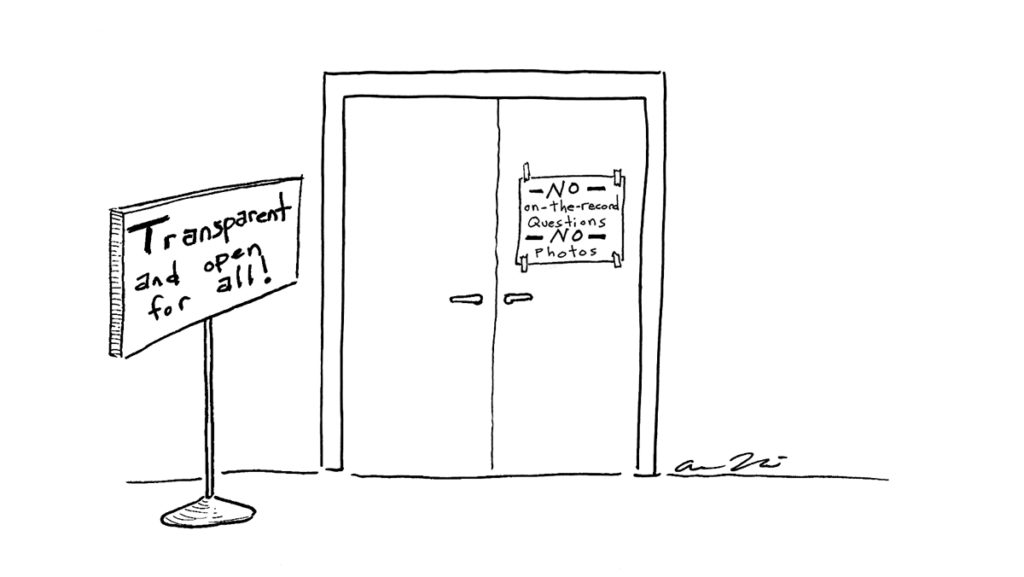Currently, Ithaca College is searching for people to fill two major positions in its administration. Finalists for both the new dean of the School of Humanities and Sciences and the executive director for student wellness have been selected by the college, and all have been given the opportunity to give presentations and interact with the campus community. However, despite these events’ being open to the public with the intention of transparency, one glaring issue remains: The Ithacan is not permitted to photograph or interview any of the candidates.
Dave Maley, director of public relations at the college, told the editorial board of The Ithacan that its staff could not take photographs of or interview the candidates because although the open sessions were public events, the candidates’ presentations were not “media events.”
The most obvious issue this ban raises is one of transparency. Despite the candidates’ presentations being public, by not permitting on-the-record questions from reporters and photographs, the college is significantly limiting the amount of information the campus community will receive. When reporters are not allowed to ask candidates on-the-record follow-up questions, the community is not able to get the clarity it deserves regarding the information being provided to it. Important positions at the college are in the process of being filled, and every member of the campus community is entitled to fully comprehend and investigate who is being seriously considered for essential campus posts. The media’s role is to make sure that information is accessible to the public, and to hinder reporting of these open sessions is an act of censorship.
Another issue this ban raises is the question of diversity. When reporters are not able to take photos of the candidates and the candidates do not disclose exactly what their racial identities are in their presentations — remember, reporters cannot ask follow-up questions to clarify — the college community has no idea whether or not these search committees are considering representative candidates. At an institution that claims to want to diversify its administration and provide people of color equal opportunities, knowing the diversity of the candidates the college is considering for positions of power is more crucial than ever. Our reporters — and, consequently, our community — are left not knowing if the college is actually upholding its promise to diversify our campus community. Although our reporters will know about any visible diversity after attending the presentations, they will be unable to show this to our readers. Additionally, the lack of permitted interview questions allows for the possibility that both reporters and the community will be left unaware of nonvisible diversity, which still has a crucial role in diversifying our administration.
There’s been a growing trend in higher education to keep searches for administrative positions closed to the public. The reasoning is that qualified candidates may not be attracted to an institution that holds open searches because candidates’ employers may become wary seeing their employees publicly looking for their next job. But open searches allow for both the candidate and the campus community to get an honest, authentic vision for the future of the institution. Aren’t these values critical for a transparent, democratic campus community to pursue?
Many people who are invested in the candidates for these positions of power, as members of our community should be, are reliant on media outlets to fill them in on the events they often do not have the time to attend themselves. By restricting The Ithacan’s reporting, the college is not upholding its promise to keep these searches fully transparent and open to the public.
Instead of suppressing student journalists by not permitting photographs or interviews of candidates for crucial positions on this campus, the college should support them by allowing them to do their jobs.








